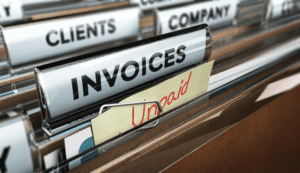Content

Factoring invoices is an excellent option for companies that are pursuing an aggressive growth stage, as it can scale with your business. As long as your clients have good credit, you can increase the number of factors your business maintains. Credit RiskCredit risk is the probability of a loss owing to the borrower’s failure to repay the loan or meet debt obligations. It refers to the possibility that the lender may not receive the debt’s principal and an interest component, resulting in interrupted cash flow and increased cost of collection. The exact terms of non-recourse factoring will vary from company to company. Make sure you know under what circumstances in the non-recourse factoring arrangement the factoring company would ask for their money back. With accounts receivable financing, on the other hand, business owners retain all those responsibilities.
- Introduction of the Internet and the web has accelerated the process while reducing costs.
- Factored invoices must represent completed and delivered products or services.
- After approval, many factoring companies can provide financing within a matter of days.
- However, the construction industry has features that are risky for factoring companies.
- The number one reason to factor invoices is to quickly provide your company with cash to fund a new project for a client.
Thus, an invoice financing company that charges 1% per week would result in a discount rate of 6–7% for the same invoice. Contrary to receivable financing and loans, accounts receivable factoring does not create debt for your business.
Services
An accounts receivable factoring broker is someone that refers business to a factoring company and receives a commission for doing soon. This industry is unregulated and can create a great residual income for someone that is connected in a particular industry. If you would like to find out how you can start, please reach out to us today. With Accounts Receivable Factoring, you will often face higher interest rates.
Plus, unlike with traditional bank loans, factoring doesn’t require you to sign over assets as collateral — instead, your accounts receivables fill that role. Accounts Receivable Factoring allows you toreceive payment for completed work or services immediately, rather than waiting for customer payment to be received. One of the oldest types of commercial financing — it involves the selling of accounts receivables, or outstanding invoices, at a reduced or marked down price to a factoring or financing company. Accounts Receivable Factoring companies are actually purchasing invoices at a discount rate thus transferring the assets or invoices to their balance sheet.
Accounts Receivable Factoring is Easy with Our Factoring Company
We understand the need for reliable cash flow and opportunities for growth generally come with tight timelines. And unlike many other factoring companies, we can have funds in your hands in a matter of days. This allows the business to quickly improve their cash flow without having to go through the lenghty process of applying and waiting for approval for a bank loan. The invoice factoring process is fairly simple and quick and funding can occur within a matter of days. A lender looks at the aging schedule of your business firm’s accounts receivables in determining which ones to accept as collateral. Usually, the lender only accepts those receivables that are not overdue.
In such a scenario, accounts receivable factoring eliminates the need to wait for the conversion of invoices into cash. Factoring converts your accounts receivable into working capital without creating debt or adding liability. Factoring does not rely on your credit rating, collateral, or bringing in investors, so companies who have faced previous cash flow challenges may more easily qualify for funding.
How Invoice Factoring Benefits Your Business
Business owners receive financing based on the value of their accounts receivable. The speed of cash flow can get hampered when the revenue of the business is tied up in unpaid receivables, affecting the payroll and overhead costs of the company.
By reducing the size of its cash balances, more money is made available for investment in the firm’s growth. In the often volatile apparel industry, a steady cash flow and proactive risk strategy are imperative for successful growth. On the advice of Marcum LLP, a CPA firm, San Francisco-based apparel company CP Shades implemented credit insurance as a comprehensive solution to mitigate risk and strategically grow sales. For companies looking to avoid the risks of recourse factoring and the higher costs of non-recourse. Non-recourse factoring carries a higher risk and is generally used less frequently.
Improvement in cash flow
For example, if the factoring company buys $10,000 worth of receivables and agrees to advance 90% of the total payment, then you will receive $9,000. To help you understand how accounts receivable factoring works, let’s look at a step-by-step break-up of the process. The discounted rates at which the factoring company buys the receivables can go up to 4% and can come down to even 1%, depending on the factors mentioned above. If your company has just come out of bankruptcy or has tax liens hanging over like a storm cloud, it will be impossible to get operating cash from a bank. But a factor can buy your outstanding invoices and get your company back on its feet. A lender won’t help in this situation because of the startup’s inconsequential credit history. Instead of worrying about how you will keep your small business afloat, you need to gather up your outstanding receivables and get in touch with our company.

You can use the factoring service for whatever need you have—use the funds to cover payroll and other payments vital to your business or use it to put your growth plan into action. For an overview of clauses that may fall under the scope of the general prohibition of unfair clauses, we refer toour article about the impact of the B2B Law on general terms and conditions. More information on the B2B Act can also be found in our article on the impact of the B2B legislation to distribution agreements and services agreements. Many small businesses in a huge variety of industries use this form of financing when they need short-term working capital loans. Specialist funding marketplaces like Raise enable Recruitment businesses to access the best funding options that they need to grow their agency.
Accounts Receivable Factoring
The company selling its receivables gets an immediate cash injection, which can help fund its business operations or improve its working capital. Working capital is vital to companies since it represents the difference between the short-term cash inflows versus the short-term bills or financial obligations . Factoring is not considered a loan, as the parties neither issue nor acquire debt as part of the transaction.